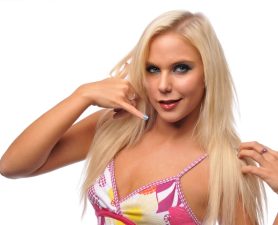
Lesbian nick names can be a great way to show your pride, and help people understand more about your identity. Here are some popular ones.
Dykon is a slang word for someone who’s well-known within the LGBTQ community. Some famous examples include Ellen De Generes, Ruby Rose and Haley Kiyoko.
Butch
Butch is a lesbian slang term for someone who presents as masculine. It was originally derogatory, but has been reclaimed by lesbians and is now widely used within the queer community.
This identity is rooted in working class lesbian bar culture in the 1940s, where women would dress in men’s clothing to avoid police raids and reclaim femininity. While many lesbians identify as butches or femmes today, not all do so – it is a complex and evolving dynamic.
A lesbian who presents more masculine than feminine, but does not fit the butch stereotype is known as a stud. Similarly, someone who has both butch and femme traits is a chapstick lesbian.
Feminine
Feminine is a term that describes characteristics traditionally ascribed to the female gender. This can include sensitivity, humility, grace and compassion. Femininity can also refer to the way someone dresses or presents themselves. This can be a part of their gender identity, or they may simply enjoy wearing certain clothing styles.
A dykon is someone who is celebrated within the lesbian community. This could be a celebrity, or it can be anyone influential who has made a difference for the community. Dykons love to support their sisters and they will do anything for them! They are often seen wearing Vans or Doc Martens.
Bisexual
Bisexual is an umbrella term for people who identify as romantically and/or sexually attracted to more than one gender. Other names for bisexuality include pansexual, omnisexual and queer.
Dyke is a lesbian slang word for someone who is feminine in their gender expression and identity. This may be reflected in pronouns switching between female and male, clothing choices and/or sexual preference.
Some LGBT people have never had a romantic or sexual experience with men and still consider themselves bisexual. This is a normal and valid sexual orientation. It’s also important to remember that our sexual orientations describe much more than physical attraction – they’re part of our identities as people, too.
Panssexual
A person who identifies as pansexual is attracted to people of all genders. This orientation differs from bisexuality in that pansexual people don’t necessarily lis cis men or women but also may lis non-binary and transgender individuals.
This term, which comes from the Greek word for all (pan), is rising in popularity as more people embrace sexual fluidity and reject binaries. But it’s important to remember that everyone defines their sexual, romantic and gender identities differently. It’s always best to let people choose the terms that feel most authentic to them. And never make assumptions about someone’s orientation. It’s their own journey. And we should support them every step of the way.
Womxn
Womxn is a radical respelling of the word women, replacing the y with an x to include non-cisgender and nonbinary individuals. It also rejects the folk etymology of the word woman, which implies that women are of men.
The term is widely used in intersectional feminist spaces and aims to be inclusive of marginalized communities. However, it has received backlash from some groups who believe it is exclusionary to trans and non-binary people. For example, streaming platform Twitch was criticized for using the term in their tweets to kick off Women’s History Month. The company later apologized and stated that they would not use the term in the future.









